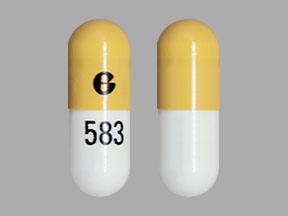Aprepitant and Alcohol/Food Interactions
There is 1 alcohol/food/lifestyle interaction with aprepitant.
Nicotine Aprepitant
Moderate Drug Interaction
Consumer information for this interaction is not currently available.
MONITOR: Smoking cessation may lead to elevated plasma concentrations and enhanced pharmacologic effects of drugs that are substrates of CYP450 1A2 (and possibly CYP450 1A1) and/or certain drugs with a narrow therapeutic index (e.g., flecainide, pentazocine). One proposed mechanism is related to the loss of CYP450 1A2 and 1A1 induction by polycyclic aromatic hydrocarbons in tobacco smoke; when smoking cessation agents are initiated and smoking stops, the metabolism of certain drugs may decrease leading to increased plasma concentrations. The mechanism by which smoking cessation affects narrow therapeutic index drugs that are not known substrates of CYP450 1A2 or 1A1 is unknown. The clinical significance of this interaction is unknown as clinical data are lacking.
MANAGEMENT: Until more information is available, caution is advisable if smoking cessation agents are used concomitantly with drugs that are substrates of CYP450 1A2 or 1A1 and/or those with a narrow therapeutic range. Patients receiving smoking cessation agents may require periodic dose adjustments and closer clinical and laboratory monitoring of medications that are substrates of CYP450 1A2 or 1A1.
Switch to professional interaction data
Aprepitant drug interactions
There are 463 drug interactions with aprepitant.
Aprepitant disease interactions
There is 1 disease interaction with aprepitant which include:
More about aprepitant
- aprepitant consumer information
- Check interactions
- Compare alternatives
- Pricing & coupons
- Reviews (18)
- Drug images
- Side effects
- Dosage information
- During pregnancy
- Drug class: NK1 receptor antagonists
- Breastfeeding
- En español
Related treatment guides
Drug Interaction Classification
| Highly clinically significant. Avoid combinations; the risk of the interaction outweighs the benefit. | |
| Moderately clinically significant. Usually avoid combinations; use it only under special circumstances. | |
| Minimally clinically significant. Minimize risk; assess risk and consider an alternative drug, take steps to circumvent the interaction risk and/or institute a monitoring plan. | |
| No interaction information available. |
See also:
Further information
Always consult your healthcare provider to ensure the information displayed on this page applies to your personal circumstances.


